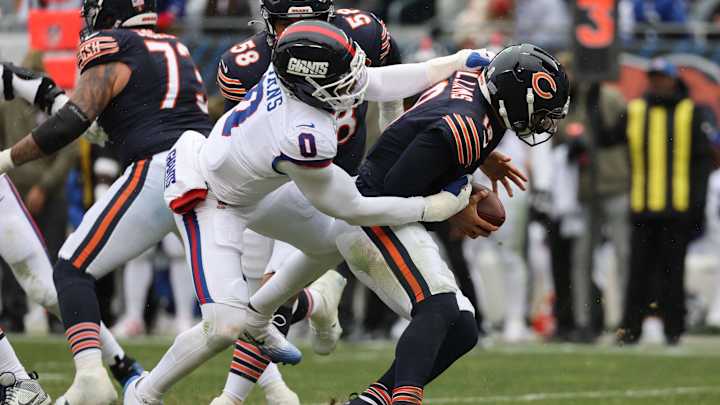The Chicago Bears are striving for a more dominant performance against their opponents, aiming to avoid the trend of relying on late-game heroics. The team”s offense, led by Caleb Williams, has displayed a tendency to score heavily in the fourth quarter, indicating a possible pattern of procrastination. While it is common for NFL teams to ramp up scoring in the closing stages of games, the Bears have taken this to an extreme, racking up double-digit points in the final quarter of their last three games, including 14 points in their recent victory.
Currently, the Bears rank fifth in the league with an average of 8.3 points per game in the fourth quarter, and they also perform well in the first quarter, averaging 6.7 points. However, there is a noticeable drop in their performance during the second and third quarters, where they rank 20th and 17th, respectively, with averages of 6.7 and 4.9 points. Williams has recognized that the team often puts itself in challenging situations late in games, which incentivizes them to perform under pressure. “I think anytime somebody goes into the fight or flight mode and you just start flying, you get into a mode and you don”t feel anything,” Williams explained. “You”re flying at that moment and you have to go do it.”
Williams emphasized that late-game scenarios often bring out a survival instinct. “The mindset changes. I would say just in the sense of, we have no other option at that point, other than try and score and fight and fight and fight,” he noted. This shift in mentality could be a factor in their recent success, but the team recognizes the need for a more balanced offensive approach throughout the entirety of the game.
Ben Johnson, the offensive coordinator, has acknowledged his role in the team”s scoring inconsistencies. He stated, “I know why I did everything in the moment, why I call things, everything has a reason. And yet when it doesn”t click the way we want it to, then I just question whether I should have done something or done something else.” Johnson took ownership of the team”s performance and highlighted the importance of a collective effort among players and coaches. “It”s really important that they understand we”re all in the same boat,” he added.
The Bears are working towards achieving a more cohesive style of play, which includes complementary football that merges offensive efficiency with defensive strength. If they can find a better balance in execution and game strategy, their current six wins in seven games could pave the way for even greater success. Williams expressed a desire to demonstrate their ability to play effectively for the entire game: “We do want to showcase… that we can play all 60 minutes, and we can put up points and defense can hold their offense and we can start steamrolling.”
For now, the Bears continue to rely on their late-game performances, needing to evolve their play to achieve consistency throughout all four quarters.







